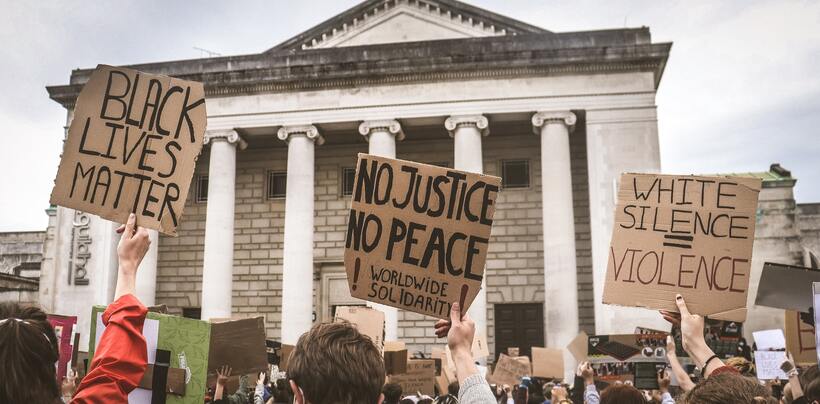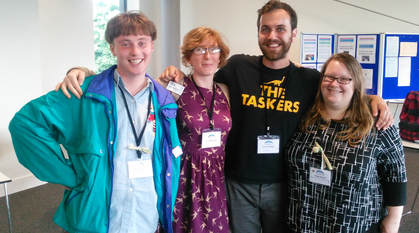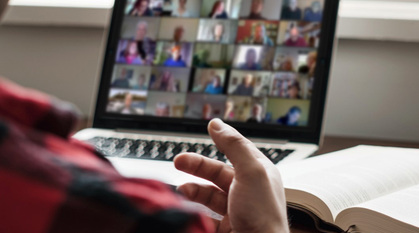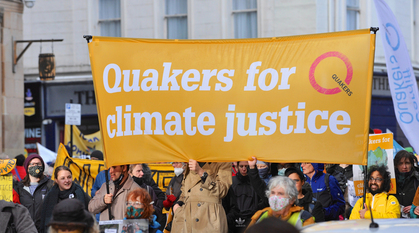Racial justice learning for Quakers: a reflection
Karen Dickson reflects on a recent series of workshops about committing to action on racial justice.

During June and July I joined approximately 80 other Quakers in a series of five online workshops initiated in response to the killing of George Floyd, and the growth of Black Lives Matter protests in the UK. I didn't believe that I was racist; I certainly didn't want to identify as racist, but I knew that I might be clumsily unaware of some of the challenges faced by people of colour. I hoped that the workshops would increase my understanding and develop greater insight into effective allyship.
Having signed up, the welcome email clearly set out rigorous expectations for the next five weeks. This was not going to be about having 'a nice read and a light discussion'. We were about to embark on a significant amount of reading and reflection, and a commitment to anti-racist activism. The right tone was set from the beginning; it felt a little daunting, but so important.
Exploring power, privilege and prejudice
Over the next few weeks, we explored our white power and privilege, and our prejudices. We were introduced to Robin di Angelo's concept of White Fragility. We shared our experiences of race and racism and learnt about people in the UK who had lost their lives in racially motivated attacks and police brutality – the list was long – and we honoured their memories. We remembered Grenfell.
In some ways, it is easier to learn about racism in America. However, the course helped us to become more finely attuned to issues in this country. We became more aware of the historical/cultural impact felt by people of colour. In Britain, the narrative is very Eurocentric, very white; the Afro-Guyanese poet John Agard said, "The first line in our history book, I seem to remember, was, “West Indian history begins in 1492 with the arrival of Columbus."
We learnt that white supremacy involves all white people in racism. Quakers Sophie Bevan and Elliott Burcham wrote that "there is no neutral space with racism, we cannot be 'not racist', we can only be complicit in racism or actively against racism."
Experiencing discomfort
Over the weeks, I experienced times of deep discomfort and some confusion. How could you not be affected, learning about so much suffering and death? I was hungry to learn more, but receiving a clear message that white people should not be burdening people of colour by demanding explanation and education. There's enough material already available for us to do our own research. I was so glad that another Friend from my Quaker Meeting was also taking part in the workshops and there were times when we really appreciated being able to contact each other and give and receive support.
Listening and learning
Having heard that it was my responsibility to educate myself, it was a surprise that preparative tasks for the final workshop included asking a Black friend to share a time when they'd experienced racism. What was I to do? I tentatively put out feelers to an African American friend. Would he be willing to talk? He knew about the workshops and was pleased they were taking place, but up to that point there'd been no discussion.
Later that week, he sent an account of some of the violence and intimidation his family had suffered, mostly from the police. A life was lost, another was hospitalised for several months following a police shooting. Precautions have to be taken for the simplest car journey when there have been multiple stop and search incidents – at gun-point.
As I read these accounts, my perspective shifted. This was the ongoing history of someone I knew. I'm sorry that I hadn't been more aware, that I'd thought these things, dreadful as they are, were exceptional events. I felt, in a way that I had not before, the weight that all Black people carry. And regular UK news reports ensured that I wasn't under any misapprehension that this was something that only happened the other side of the Atlantic.
Demonstrating solidarity
As the workshops came to a close, we looked forward, learning about the various roles needed in effective organisations and the different skills each of us could bring to help develop racial justice in our society. There are contradictions to balance, the need for humility, the need to listen, to learn, to be tough and to be compassionate. The Covid-19 restrictions to normal life are frustrating, and limit some actions, however we can always show our solidarity by continuing to learn about the impact of racism, by financial support, lobbying and prayer.
Huge thanks to Turning the Tide GB's Lyndsay Burtonshaw and the team for initiating and facilitating the workshops. As my African American friend says, "This is an amazing time. Never in my lifetime have such a broad group of people been willing to have a deeper conversation about how we relate to one another. This is an important time … We must all do our part to discuss that which is difficult. It makes a real difference."
Hopefully, the workshops will be repeated soon to give others the opportunity to begin, or continue, their journey as anti-racist activists.
Pressing play on the video above will set a third-party cookie. Please see our cookies page to find out more.
'Black Lives Matter: Whiteness and racial justice learning for Quakers' was a series of workshops held between 24 June–22 July 2020. There was huge interest in these workshops and further thought is going in to how to hold similar workshops in the near future.


